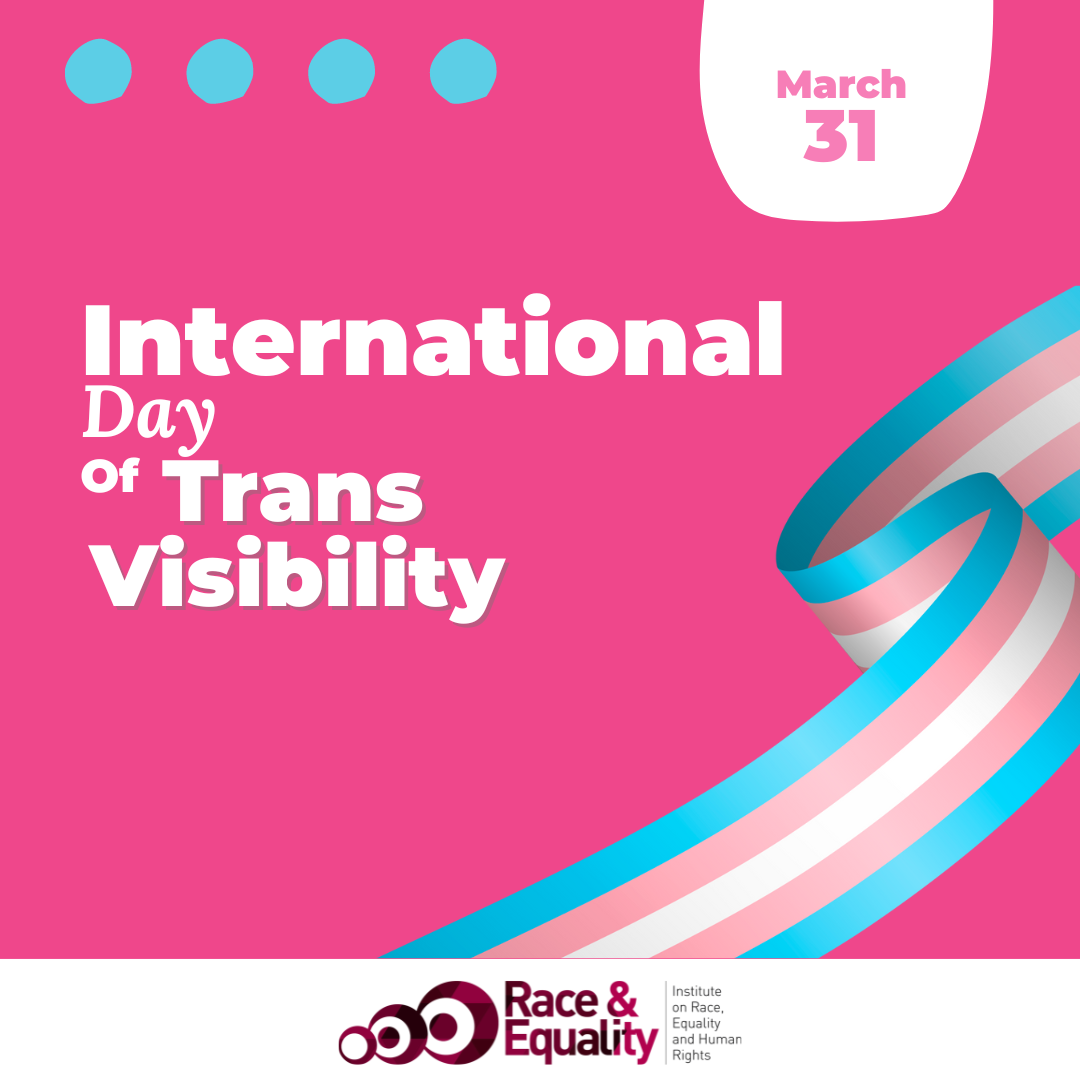Trans Visibility Day: access to healthcare is a human right, not a privilege
On International Transgender Day of Visibility, Race and Equality underscores the obligation of States to secrue the access to healthcare for all people without discrimination.

Washington D.C., 31 March 2024.- On International Transgender Day of Visibility, the Institute on Race, Equality and Human Rights (Race and Equality) recognizes that trans people, trans non-binary people, and gender diverse people continue to face strong institutional, social, and economic barriers in the exercise of their right to healthcare, while even more people who are racialized, impoverished, migrants or sex workers.
According to the thematic report on trans people and people of diverse gender identitiy and their economic, social, cultural, and environmental rights from the Inter-American Comission on Human Rights (IACHR) and the Special Rappertour on Economic, Social, Cultural, and Environmental Rights (SRESCER), the lack of legal and social recognition of the gender identity of trans people, non-binary trans people, and gender diverse people vulnerabilizes their human rights, and much of time puts them in risky situtations.
Even in Latin American countries that enjoy gender identity recognition legislation, the lack of comprehensive implementation, investment, awareness and training of authorities and health officials continue to produce situations of discrimination and violence. In Brazil, for example, “we have the Comprehensive National LGBTQIA+ Health Policy which is a fundamental document and we have the Gender Modficiation Process which is very necessary for the specific demands of trans people. However, it is crucial that the government allocates more investments so that the service really reaches all the people who need it”, says Yara Cavalcante, from ANTRA.
Some of the prejudices against the right to healthcare of trans, trans non-binary and gender-diverse people have to do with the impossibility of accessing health services due to their gender identity and the exposure to unsafe, unsupervised, and even clandestine methods of body modification (hormonal processes, surgical interventions). “In Peru, transmasculine people do not have access to specialized services such as hormone therapy, treatment follow-up or gender affirming surgeries; and many must choose to seek alternatives in the private sector, which is expensive and not accessible to all, so many end up self-medicating with inappropriate medications and putting their health at risk”, says Bruno Montenegro, trans man, founder of Fraternidad Trans Masculina Perú.
Likewise, the lack of knowledge of health workers about the specific health needs of transgender people, mistreatment and pathologization in health services linked to prejudice and stigma -also related to HIV cases- generate anxiety, fear and lack of motivation to return to the health centers. On the other hand, medical personnel who are neither trained nor sensitized to attend to the needs of transgender people can lead to misdiagnosis and mistreatment. In the worst cases, they may incur in negligence, often committing torture, as in the case of so-called “conversion therapies” in mental health centers, as pointed out by the testimonies in the report: Bodies and resistances that transgress the pandemic: transmasculinities and AFAB non-binary people in Peru (2020).
Other factors that impacts the access trans people have to healthcare services is a lack of resources. In countries like Cuba, for example, shortages of hormonal products is one problem the population faces. “Testosterone is sometimes in short supply. At times we have to go one to five months without treatment,” stressed Carlos Hernández, a Cuban trans man that coordinates the independent social project Por Siempre Trans.
In addition to all this, which has its origins in the hegemonic cisgender model, no major medical advance has considered trans people as an objective and specific population. As Mateo Rodrigo of Hombres Trans Diversos de Bolivia points out, “hormonal treatments and other medical procedures to which trans people have access were not originally created for trans people. Nor is there sufficient academic production that studies the long-term repercussions of these treatments on the health of trans people.”
Faced with these situations of violation and concerns of trans counterparts around the right to healthcare, Mi Salud Transmasculina Importa was born, which is a project with a regional scope managed by Fraternidad Trans Masculina de Perú, Fraternidad Trans Masculina de Ecuador, Rosa Rabiosa de Perú, Hombres Trans Diversos de Bolivia, and the Instituto Brasilero de Transmasculinidades – IBRAT of Brazil, with the support from Race and Equality. This space also has the objective to support the integral wellbeing of the transmasculine population of Latin America through information and communication.
For all of the above reasons, Race and Equality recalls that States have the obligation to ensure access to health care for all people without discrimination. In this regard, it highlights the following recommendations on the right to access to healthcare for trans, non-binary trans and gender-diverse people, which were set forth by the IACHR in the Report on Trans and Gender-Diverse People and their Economic, Social, Cultural and Environmental Rights (2020):
- Promote the training of medical personnel on the needs of transgender people.
- Combat prejudice and binary male and female stereotypes in access to health services.
- Establish directives or protocols for the care of trans patients.
- Guarantee health protocols for gender affirming care, including psychological, endocrinological, and surgical care.
- Gender affirming care should be based on free, prior and informed consent and move towards being free of charge.
- Prohibit and sanction activities that offer “therapies” to “modify,” “re-orient,” or “cure” people’s gender identity.

